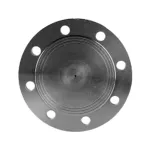-
Cangzhou Yulong Steel Co., Ltd.
-
Phone:
+86 13303177267 -
Email:
admin@ylsteelfittings.com
- English
- Arabic
- Italian
- Spanish
- Portuguese
- German
- kazakh
- Persian
- Greek
- French
- Russian
- Polish
- Thai
- Indonesian
- Vietnamese
- Zulu
- Korean
- Uzbek
- Hindi
- Serbian
- Malay
- Ukrainian
- Gujarati
- Haitian Creole
- hausa
- hawaiian
- Hebrew
- Miao
- Hungarian
- Icelandic
- igbo
- irish
- Japanese
- Javanese
- Kannada
- Khmer
- Rwandese
- Afrikaans
- Albanian
- Amharic
- Armenian
- Azerbaijani
- Basque
- Belarusian
- Bengali
- Bosnian
- Bulgarian
- Catalan
- Cebuano
- China
- China (Taiwan)
- Corsican
- Croatian
- Czech
- Danish
- Esperanto
- Estonian
- Finnish
- Frisian
- Galician
- Georgian
- Kurdish
- Kyrgyz
- Lao
- Latin
- Latvian
- Lithuanian
- Luxembourgish
- Macedonian
- Malgashi
- Malayalam
- Maltese
- Maori
- Marathi
- Mongolian
- Myanmar
- Nepali
- Norwegian
- Norwegian
- Occitan
- Pashto
- Dutch
- Punjabi
- Romanian
- Samoan
- Scottish Gaelic
- Sesotho
- Shona
- Sindhi
- Sinhala
- Slovak
- Slovenian
- Somali
- Sundanese
- Swahili
- Swedish
- Tagalog
- Tajik
- Tamil
- Tatar
- Telugu
- Turkish
- Turkmen
- Urdu
- Uighur
- Welsh
- Bantu
- Yiddish
- Yoruba

Dec . 18, 2024 14:54 Back to list
ansi b16 1
Understanding ANSI B16.1 Standards for Cast Iron Pipe Flanges
The ANSI B16.1 standard plays a crucial role in the specification of cast iron pipe flanges used in various piping systems across industries. Established by the American National Standards Institute (ANSI), this standard serves as a guideline for manufacturers, engineers, and installers involved in the design, production, and implementation of cast iron piping systems. Its importance cannot be overstated, as it ensures safety, reliability, and compatibility in diverse applications, ranging from water distribution systems to industrial processes.
At its core, ANSI B16.1 provides the specifications for flanged fittings made of cast iron, detailing the dimensions, tolerances, materials, and performance requirements. These flanges are crucial connectors that allow for the joining of pipes, enabling efficient transport of liquids and gases. The standard specifies various classes of flanges, categorized by pressure-temperature ratings, allowing users to select the appropriate flange based on the specific requirements of their application.
Understanding ANSI B16
.1 Standards for Cast Iron Pipe FlangesIn addition to material specifications, ANSI B16.1 addresses the dimensional characteristics of flanges. These include parameters such as flange thickness, bolt hole spacing, and the size of the flange itself. The standard provides detailed tables and diagrams that facilitate the manufacturing process by ensuring consistency and uniformity across various flange products. This dimensional compatibility is vital for the proper assembly of piping systems, as it reduces the risk of leaks or failures at the joints.
ansi b16 1

The performance requirements outlined in ANSI B16.1 cover aspects such as pressure ratings and temperature limits. By establishing these parameters, the standard helps engineers and designers select appropriate flanges for their specific service conditions. This is particularly important in high-pressure applications where even minor deviations from specifications can lead to catastrophic failures.
Standards like ANSI B16.1 are essential for the industry, as they promote interoperability among different manufacturers. When all players in the market adhere to the same specifications, it enables seamless integration of components from various sources. This is especially crucial in large projects that rely on multiple suppliers, as it helps ensure that parts fit together correctly without the need for extensive modifications or custom solutions.
Moreover, adhering to ANSI B16.1 not only optimizes the performance of piping systems but also enhances safety. Ensuring that flanges meet established standards reduces the risk of leaks and ruptures, which can pose significant hazards in industrial environments. By installing high-quality, standardized components, companies can protect their workforce and minimize the potential for environmental damage.
In conclusion, ANSI B16.1 serves as a vital framework for the production and implementation of cast iron pipe flanges. By providing clear specifications regarding materials, dimensions, and performance requirements, it ensures that flanges are not only compatible with existing systems but also safe and efficient in operation. For manufacturers, engineers, and installers, familiarity with ANSI B16.1 is crucial for the successful design and execution of piping projects. As industries continue to evolve and face new challenges, the importance of adhering to established standards will remain paramount, fostering safety, reliability, and efficiency across the board.
Latest news
-
ANSI 150P SS304 SO FLANGE
NewsFeb.14,2025
-
ASTM A333GR6 STEEL PIPE
NewsJan.20,2025
-
ANSI B16.5 WELDING NECK FLANGE
NewsJan.15,2026
-
ANSI B16.5 SLIP-ON FLANGE
NewsApr.19,2024
-
SABS 1123 FLANGE
NewsJan.15,2025
-
DIN86044 PLATE FLANGE
NewsApr.19,2024
-
DIN2527 BLIND FLANGE
NewsApr.12,2024
-
JIS B2311 Butt-Welding Fittings LR/SR 45°/90° /180°Seamless/Weld
NewsApr.23,2024











